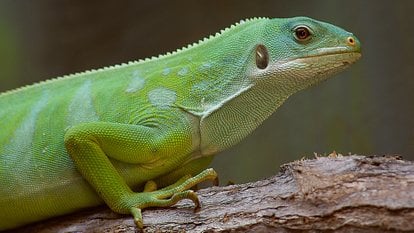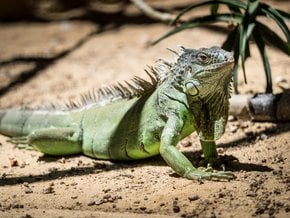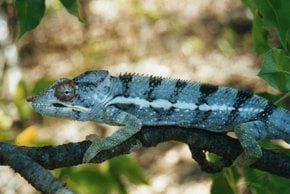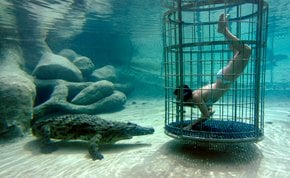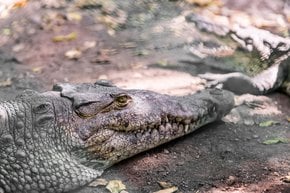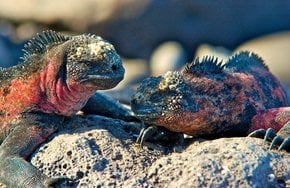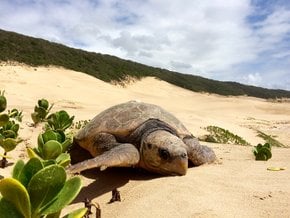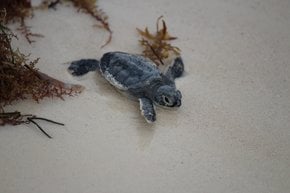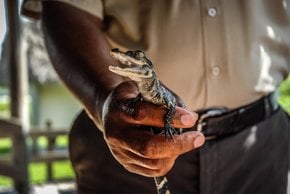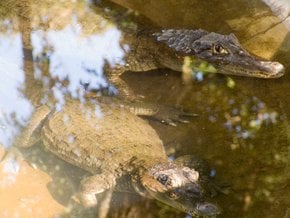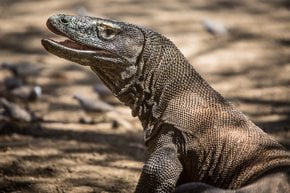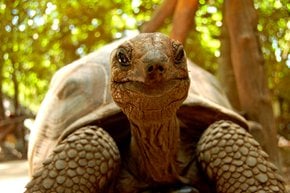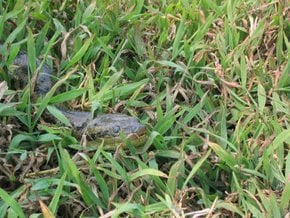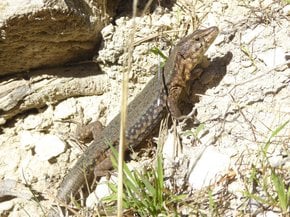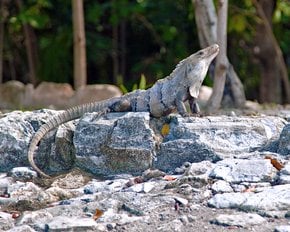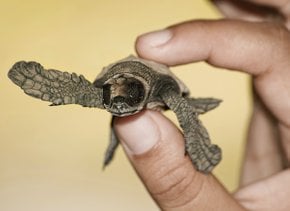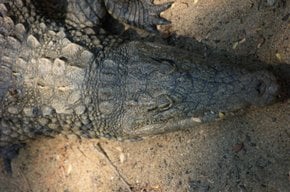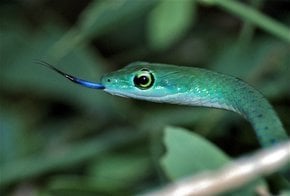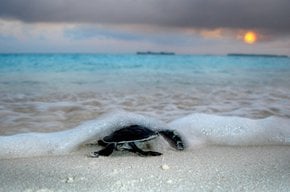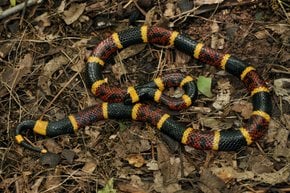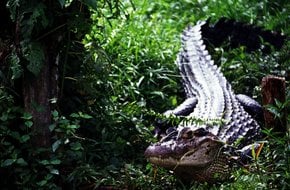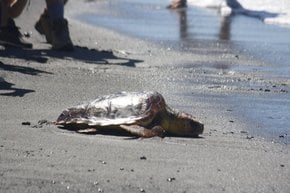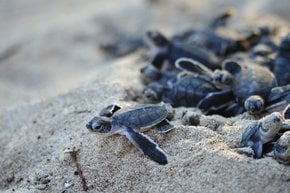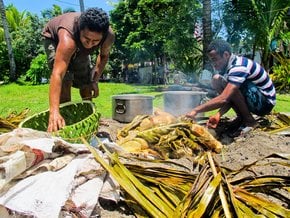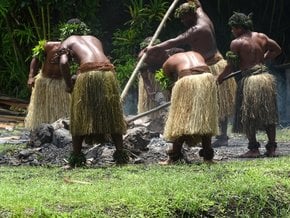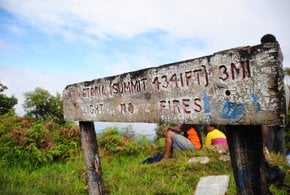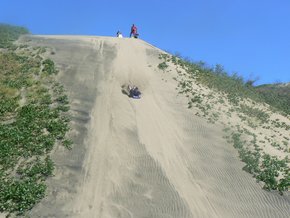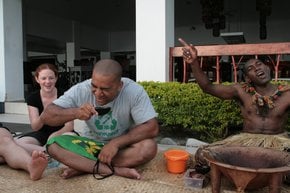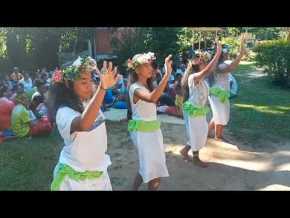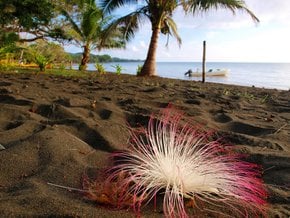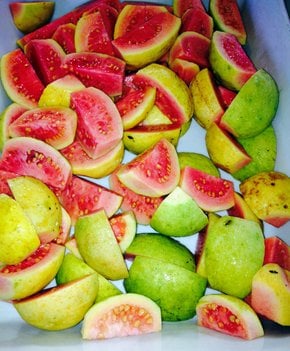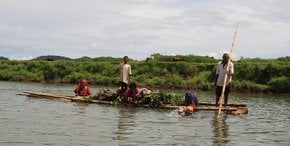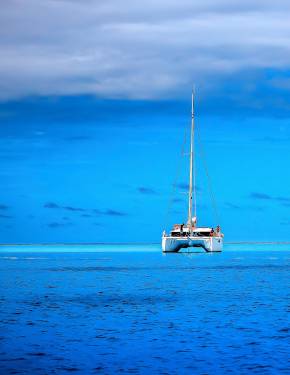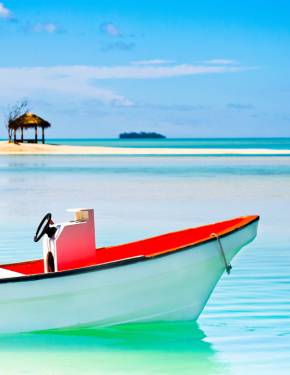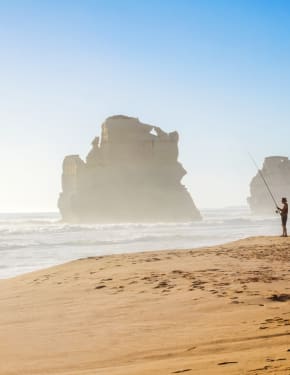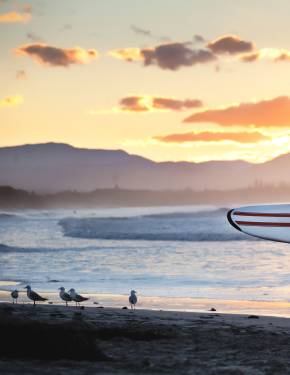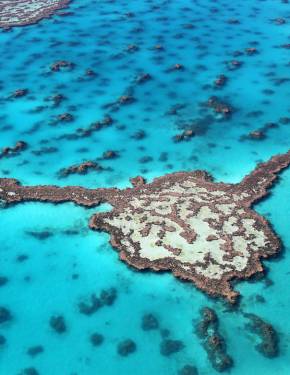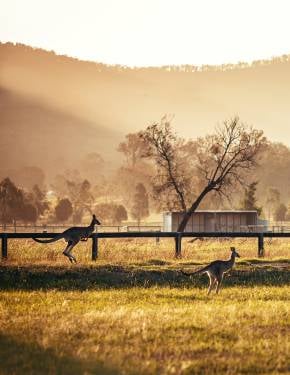Fijian Banded Iguana Breeding 2026
Active during the day, looking for food and basking, Fiji banded iguanas hide in the treetops at night
Best time: March–April | November
Fiji banded iguanas are tropical lizards that can be found mainly on the south-eastern islands of Fiji. You can see them camouflaging in the treetops of mesic to moist forests of Vanua Levu, Viti Levu, Viwa, Ovalau, or Kadavu, where they usually spend most of their life. But during the day, especially between meals, they bask on tree branches in the sun.
Traditionally they are bright blue and green but can change their skin to be darker when exposed to the sun. Due to sunlight, Fiji banded iguanas' skin warms up more quickly. This species of iguanas have long spindly toes and sharp claws that help them quickly climb the trees. The breeding season of Fiji banded iguanas starts in March and lasts to April, sometimes during November. The females leave the treetops to lay eggs. They use their feet and jaws to dig a nest, and after nesting the eggs, they cover them with soil and leaf litter and pat the top down with the head. After this procedure, the female returns back to the tree. The incubation period lasts from seven to nine months.
When babies are born, they come out from their eggs and dig themselves out of the soil. Then the little iguanas have to find their food and a safe place to hide. Fiji banded iguanas are considered a national treasure by Fiji and a sacred animal among some island tribes. You can see their display on the national currency and stamps.

